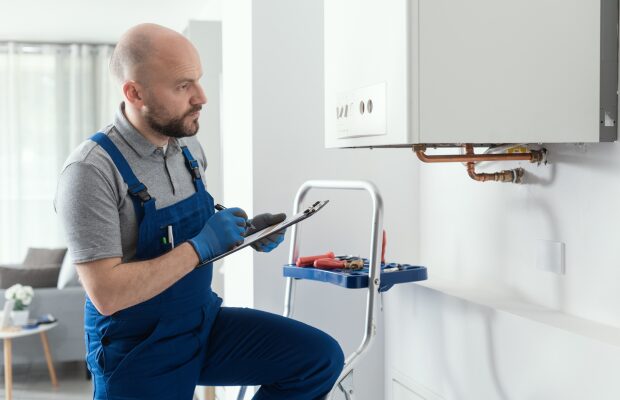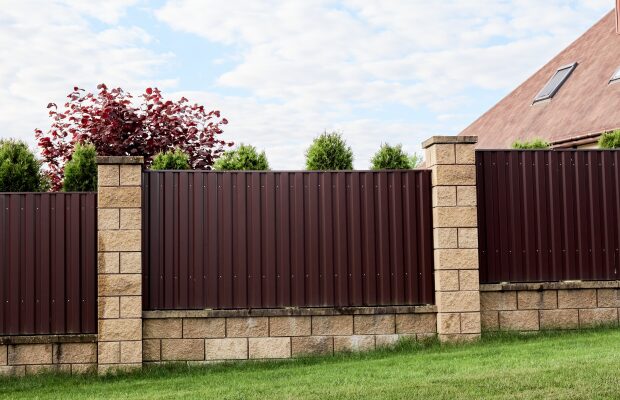Auctions can be a fast and thrilling way to buy property.
However, buying at auction is very different to buying a property on the open market – and there’s a lot you’ll need to consider before you hit the auction room.
In this guide, we’ll explain everything you need to know about buying at auction and what you can expect from the process…
Types of property auction
If you’re considering buying a property at auction, there are two types you’ll come across in the UK – the Traditional Method and the Modern Method.
The Traditional Method
Traditional auctions take place in an auction room, although not all bidders will be present in person – online and telephone bids often form a major part of the Traditional Method.
Under the Traditional Method of auction, successful bidders exchange contracts with their seller as soon as the hammer falls and must pay their deposit immediately.
Then they have a set period to complete their purchase.
The Modern Method
Modern auctions take place online, with buyers submitting their bids up until a set deadline.
Once a bid is accepted, the buyer will usually pay a non-refundable reservation fee, usually 5% of the purchase price, and then has 28 days to exchange contracts with the seller.
Once contracts are exchanged, the buyer has a further 28 days to complete.
How do you buy a house at auction?
Whether you buy through the Traditional or Modern Method, there’s a process you can expect to follow when buying a property at auction…
1. Preparing for the auction
The best way to prepare for an auction is to attend some before you start bidding.
Being in the room and experiencing the buzz of an auction will give you a great idea on what to expect when you decide to bid on a property yourself.
Understanding guide prices and reserve prices
On the auction day itself, all the properties going up for sale will have a guide price and a reserve price.
The guide price is usually the starting price for bids, although this can sometimes be lower, and the reserve price is the minimum amount the seller will accept for the property.
The reserve price remains unknown to bidders but if that price is not met, the property goes unsold.
Read the legal pack
The auction houses will send you a catalogue of the properties coming up for auction so you can arrange viewings for any that catch your eye.
But the most important document you’ll need to examine before bidding is the legal pack associated with properties you’re interested in.
Each property that comes up for auction should have a legal pack, which contains local authority searches and other key information on the property.
If you’re unsure of anything in the legal pack, have your solicitor run their eye over it before the auction, as they’ll be able to point out any clauses or covenants that may be cause for concern.
View properties you’re interested in
It’s always important to fully inspect a property when searching for a property to purchase and buying at auction is no different.
If you want a second opinion on the condition of an auction property, it can pay to take along a builder who will be able to point out work that needs to be done and assess the costs involved.
All of this can help you decide if you want to pursue the property when it goes under the hammer.
2. Arrange your finances
If you’re planning to bid at a Traditional auction, having your finances in place before you attend the auction is key.
Your deposit
If you’re a successful bidder in a Traditional auction, you’ll exchange contracts and pay a 10% deposit there and then.
You’ll then have 28 days to raise the rest of the money to complete your purchase, so having your funding arranged before you bid is crucial.
If you buy through the Modern Method, you’ll need to pay a 5% reservation fee on the spot, before paying the rest of your deposit 28 days later and then completing the sale 28 days after that.
Funding options
If the property you’re buying is in a habitable condition, you should be able to secure a mortgage to purchase it.
If so, you should have your mortgage agreement in principle with you on the day of the auction as proof of funds.
However, many lenders won’t be prepared to mortgage a property that doesn’t have a working kitchen and bathroom, so if you’re thinking of buying a property in a poor condition and plan to renovate it, you may need to consider other forms of finance.
3. Bidding at an auction
Auction bidding can be extremely fast-paced and it’s easy to get carried away or over competitive.
You might be given a paddle with a number on before the auction begins and if so, you should raise this clearly so the auctioneer can see when you wish to lodge a bid.
If you don’t have a paddle, raise your arm clearly to lodge a bid.
Have a plan – and stick to it
Before you attend the auction, you should have a set number of properties you’re keen to bid on – based on viewings and studying the legal pack, as well as any advice from your builder or surveyor.
You should also have maximum set budgets for each property.
Don’t be tempted to over-stretch your budget when bidding, or to bid on properties you haven’t seen if you lose out on the ones you have.
4. What happens if your bid is successful
If your bid is successful at a Traditional auction, you’ll need to pay your 10% deposit and exchange contracts with your seller right away.
Under the Modern Method of auction, you’ll be required to pay a reservation fee to secure the property, before exchanging contracts within a further 28 days.
Commission a survey
After your successful bid, the first thing to do is to arrange a full survey of the property you’re buying.
A survey isn’t a legal requirement, but as with any property purchase, it pays to know exactly what you’re buying from a structural point of view.
Finalise your funding
If you’re buying your auction property with a mortgage, your lender will carry out their own valuation to ensure it’s worth what you’re paying for it.
If you’re buying through the Traditional Method of auction, you’ll have 28 days to finalise your mortgage or other funding and complete your purchase.
Arrange your insurance
Under the Traditional Method of auction, you’ll exchange contracts as soon as your bid is successful.
That means you have a legally binding responsibility for that property and, as such, you should arrange a buildings insurance policy right away.
Stamp duty and other costs
Once your auction property purchase is complete, you may need to pay stamp duty.
Stamp duty is payable on properties costing £125,000 or more, or £300,000 if you’re a first-time buyer.
You may also have to factor in an administration fee, which is payable to the auction house.
5. Timeframes for buying a house at auction
The Traditional Method
When you buy a property at auction via the Traditional Method, you exchange contracts immediately, pay your deposit and then have 28 days to complete the purchase.
So, buying at auction is usually considerably quicker than on the open market.
The Modern Method
The Modern Method of Auction, however, takes slightly longer, but does give buyers more time to arrange their mortgage finance after the hammer falls.
With this method, you’ll pay a non-refundable reservation fee within two hours of your bid being successful. This is paid in addition to the agreed purchase price.
You must then exchange contracts and complete within 56 days, which provides time to complete your funding arrangements.
Buying at auction with Parkers
Here at Parkers, we’ve partnered with auction company iamsold to offer both Traditional and Modern Methods of Auction to both buyers and sellers.
The Traditional Method of Auction gives buyers and sellers the security of exchanging contracts instantly, as well as the quickest route to completion
The Modern Method of Auction, meanwhile, has opened up the market to buyers who need more time to source their mortgage, with a timeline of 56 days to exchange and complete.
Through iamsold, we also offer online auctions with bidding 24/7, meaning you’ll never miss the chance to buy your next home at auction.







